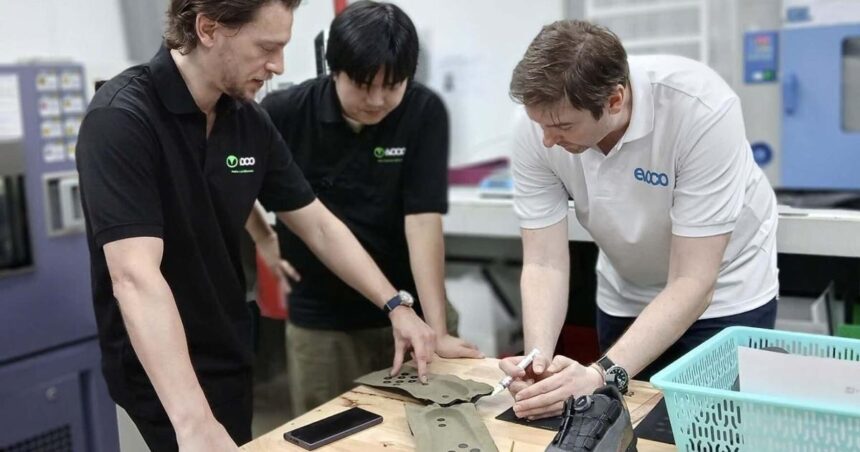In a nondescript warehouse on Toronto’s eastern edge, Gareth Brown moves between workstations where his team assembles electric bike conversion kits that will soon ship to customers across North America. What sets his operation apart isn’t just the product, but how it’s made: almost entirely with Canadian-sourced components, bucking the decades-long trend of offshore manufacturing dependency.
“Three years ago, when global supply chains collapsed during COVID, we were stuck waiting nine months for parts from Asia,” says Brown, founder of GreenWheel Sustainable Mobility. “That’s when we made the decision to bring as much of our production as possible back to Canada—not just for reliability, but because it aligns with our environmental mission.”
GreenWheel represents a growing cohort of Canadian startups reimagining supply chain management not as a cost center to minimize, but as a strategic advantage. This shift comes as businesses worldwide continue struggling with unprecedented disruptions that began during the pandemic and have been exacerbated by geopolitical tensions, climate events, and labor shortages.
Recent data from Statistics Canada shows manufacturing reshoring initiatives have increased 37% since 2020, with Ontario leading the charge. For companies like GreenWheel, this isn’t simply about avoiding delays—it’s transforming their entire business model.
“We’re paying more for some components upfront,” admits Brown, whose company grew revenue 114% last year despite the premium. “But we’ve eliminated shipping delays, reduced our carbon footprint by 42%, and can now turn custom orders around in days instead of months. Our customers have noticed.”
The company’s journey hasn’t been without challenges. When GreenWheel first approached potential Canadian suppliers, many lacked the specific capabilities needed. Rather than giving up, Brown’s team worked with several Toronto-area machine shops to develop new manufacturing processes that could meet their specifications.
“We essentially had to rebuild parts of our supply network from scratch,” explains Sarah Chen, GreenWheel’s operations director. “We invested in tooling for three different suppliers who now serve not just us, but other Canadian businesses facing similar challenges.”
This collaborative approach has created a multiplier effect. TechMetal Solutions, one of GreenWheel’s key suppliers, has hired eight additional employees and expanded their facility to meet growing demand from companies seeking locally-manufactured components.
“What started as a pandemic necessity has become a competitive advantage,” says Michael Thornton, supply chain professor at York University. “Companies that successfully reshored critical components are seeing greater resilience, faster innovation cycles, and stronger customer loyalty.”
The trend extends beyond manufacturing. Toronto-based food delivery platform FeedMe has built its entire business model around ultra-local supply chains, connecting consumers directly with producers within a 100-kilometer radius. Their platform now hosts over 400 local producers and delivers to 50,000 households across the Greater Toronto Area.
“The old system of moving food thousands of kilometers made little sense economically or environmentally,” argues FeedMe founder Lian Zhang. “By keeping our supply chain tight and transparent, we’ve cut delivery times by 60% while ensuring producers receive fair compensation.”
For more established businesses, the transition proves more difficult. A recent survey by the Canadian Federation of Independent Business found that while 78% of respondents wanted to increase Canadian sourcing, only 23% had successfully implemented significant changes.
“The reality is that decades of offshoring have hollowed out certain manufacturing capabilities in Canada,” explains Chen. “We need more investment in domestic production capacity, particularly for electronics components and specialized materials.”
The federal government has recognized this challenge, launching a $2 billion Strategic Innovation Fund specifically targeting supply chain resilience projects. Provincial governments are following suit with tax incentives for businesses that invest in local manufacturing capacity.
For consumers, the reshoring trend often means higher prices but greater transparency and sustainability. GreenWheel’s conversion kits cost about 15% more than comparable imported options, but the company’s growth suggests many customers consider this premium worthwhile.
“People increasingly want to know where their products come from and under what conditions they’re made,” notes Zhang. “Local supply chains provide that visibility in ways global ones simply cannot.”
As Toronto continues establishing itself as a hub for tech innovation, the intersection of sustainability and supply chain resilience presents new opportunities. Companies like GreenWheel demonstrate that with creative thinking and collaborative partnerships, Canadian businesses can turn global disruption into local advantage.
“We’re not just making products in Canada,” concludes Brown. “We’re rebuilding the capacity to innovate here—and that’s something worth investing in.”
For more coverage on emerging business trends, visit CO24 Business or check out the latest in Breaking News.


















